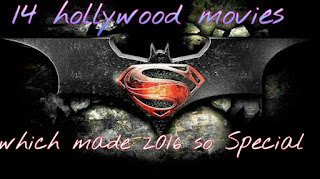What Donald Trump’s first words as President really reveal
Donald Trump climbed onto the American stage still caught up in a kind of campaign puberty, high on testosterone and ego. The winner, the outsider, the salesman of the grand idea standing triumphant on the side of the people.
Short sentences, fragmentation, oppositional language, emotive ideas, and even a touch of bad poetry. Cliche-riddled and contradictory, he spiralled between earth and sky, dreams and realities, God above and rusted factories down below. Taking "an oath of allegiance to all Americans", he made meaty promises for the future: "America First", "winning like never before", recovering from "carnage", making America "great again".
It's possible that Trump himself is not sure how he's going to draw all the loose ends of these ambitions together. Before he took to the stage, he looked strangely subdued, even disinterested and uncharacteristically nervous. But ever the grand showman, he built his confidence on the podium by taking refuge among the people who put him there. He carefully used the language they wanted to hear: God, jobs, victory, and a world where America comes first, secure in its own borders.
As a linguist, this reads like a script that's made up as he goes along. Maybe that's all part of the theatre. Perhaps Trump writes his speeches in one unedited take, a stream of consciousness. The failure to follow in the rhetorical footsteps of presidents past may prove useful to him. After all, some of the audience didn't have the greatest reaction to Chuck Schumer reading the "Dear Sarah" letter. Perhaps the people aren't interested in history anymore, or the mistakes that they can learn from. Perhaps he calculated that Americans watching from home don't have the attention span for anything so serious.
Trump's own concentration jumps about like a frog in a box. During the presidential debates, he'd abandon sentences and arguments in mid-flow.
There's an element of theatre in all politics, especially American politics. But Trump presents us with a different kind of theatre. This is gonzo theatre, not written according to script but delivered according to the needs of the moment.
Trump's style may be his downfall. If he can't stick to some aspects of the presidential script established by history, he's going to take the country, and the world, in a very uncertain direction. This inauguration was the President's last stab at playing the outsider, one of "us" taking on "them". Now he has to start delivering on the grand promises he made.
Today's show is over, but sit back and settle in.
The auditorium is about to get interesting.
Short sentences, fragmentation, oppositional language, emotive ideas, and even a touch of bad poetry. Cliche-riddled and contradictory, he spiralled between earth and sky, dreams and realities, God above and rusted factories down below. Taking "an oath of allegiance to all Americans", he made meaty promises for the future: "America First", "winning like never before", recovering from "carnage", making America "great again".
It's possible that Trump himself is not sure how he's going to draw all the loose ends of these ambitions together. Before he took to the stage, he looked strangely subdued, even disinterested and uncharacteristically nervous. But ever the grand showman, he built his confidence on the podium by taking refuge among the people who put him there. He carefully used the language they wanted to hear: God, jobs, victory, and a world where America comes first, secure in its own borders.
As a linguist, this reads like a script that's made up as he goes along. Maybe that's all part of the theatre. Perhaps Trump writes his speeches in one unedited take, a stream of consciousness. The failure to follow in the rhetorical footsteps of presidents past may prove useful to him. After all, some of the audience didn't have the greatest reaction to Chuck Schumer reading the "Dear Sarah" letter. Perhaps the people aren't interested in history anymore, or the mistakes that they can learn from. Perhaps he calculated that Americans watching from home don't have the attention span for anything so serious.
Trump's own concentration jumps about like a frog in a box. During the presidential debates, he'd abandon sentences and arguments in mid-flow.
There's an element of theatre in all politics, especially American politics. But Trump presents us with a different kind of theatre. This is gonzo theatre, not written according to script but delivered according to the needs of the moment.
Trump's style may be his downfall. If he can't stick to some aspects of the presidential script established by history, he's going to take the country, and the world, in a very uncertain direction. This inauguration was the President's last stab at playing the outsider, one of "us" taking on "them". Now he has to start delivering on the grand promises he made.
Today's show is over, but sit back and settle in.
The auditorium is about to get interesting.
What Donald Trump’s first words as President really reveal
 Reviewed by
on
6:17:00 AM
Rating:
Reviewed by
on
6:17:00 AM
Rating:
 Reviewed by
on
6:17:00 AM
Rating:
Reviewed by
on
6:17:00 AM
Rating:













